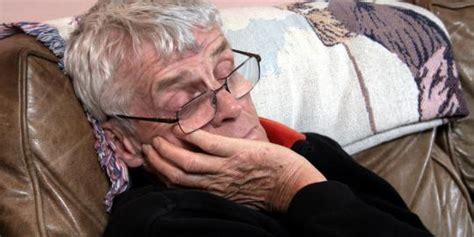Dementia in the Elderly: Understanding and Addressing the Challenges
Dementia is a general term for a decline in mental ability severe enough to interfere with daily life. It's not a specific disease, but rather a group of symptoms associated with various underlying conditions. While it's often associated with aging, it's crucial to understand that dementia is not a normal part of getting older. This article explores the complexities of dementia in the elderly, examining its causes, symptoms, and potential solutions.
Understanding the Causes of Dementia
Several factors contribute to the development of dementia. The most common cause is Alzheimer's disease, a progressive brain disorder that gradually destroys memory and thinking skills. Other significant causes include:
- Vascular dementia: Caused by reduced blood flow to the brain, often resulting from stroke or other circulatory problems.
- Lewy body dementia: Characterized by abnormal protein deposits in the brain, leading to cognitive decline, visual hallucinations, and movement difficulties.
- Frontotemporal dementia: Affects the frontal and temporal lobes of the brain, resulting in changes in personality, behavior, and language skills.
Genetic predisposition, lifestyle factors (such as diet and exercise), and certain medical conditions can increase the risk of developing dementia. Early diagnosis and intervention are crucial to manage symptoms and slow the progression of the disease.
Recognizing the Symptoms of Dementia
Early symptoms can be subtle and easily overlooked. However, as the disease progresses, symptoms become more pronounced, significantly impacting daily functioning. Common signs include:
- Memory loss: Difficulty remembering recent events, names, or appointments.
- Confusion: Disorientation regarding time, place, or person.
- Challenges with communication: Difficulty finding words, following conversations, or expressing thoughts.
- Impaired judgment: Making poor decisions or engaging in risky behaviors.
- Changes in personality and behavior: Increased aggression, apathy, or withdrawal.
- Problems with spatial awareness: Difficulty navigating familiar environments.
- Loss of initiative and motivation: Lack of interest in previously enjoyed activities.
It's important to consult a healthcare professional if you notice any of these symptoms in yourself or a loved one. Early detection is key to effective management.
Solutions and Strategies for Managing Dementia
There's currently no cure for dementia, but various strategies can help manage symptoms, improve quality of life, and support both the individual and their caregivers:
- Medication: Certain medications can help manage symptoms and slow the progression of some types of dementia.
- Cognitive stimulation therapy: Activities and exercises designed to stimulate the brain and improve cognitive function.
- Memory aids: Using calendars, reminders, and other tools to compensate for memory loss.
- Lifestyle adjustments: Maintaining a healthy diet, regular exercise, and social engagement.
- Supportive care: Providing emotional, social, and practical support to both the individual with dementia and their caregivers.
- Occupational therapy: Adapting the environment to make it safer and easier to navigate.
- Support groups: Connecting with other caregivers to share experiences and receive emotional support.
The Importance of Early Intervention and Support
Early diagnosis and intervention are paramount in managing dementia and improving quality of life. Don't hesitate to seek professional help if you have concerns. A comprehensive assessment can identify the underlying cause of cognitive decline, enabling the development of a tailored management plan. Remember that supporting both the person with dementia and their caregivers is essential. Access to support groups, respite care, and other resources can make a significant difference in coping with the challenges of this complex condition. Understanding dementia, its causes, and available support systems is crucial in empowering individuals and families to navigate this difficult journey.
